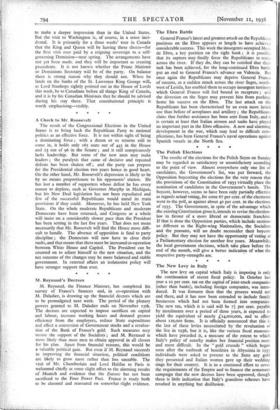The New Levy in Italy The new levy on capital
which Italy is imposing is only the continuation of recent fiscal policy. In October last year a ro per cent. tax on the capital of joint-stock companies (other than banks), including foreign companies, was intro- duced. It was foreseen then that the process would not end there, and it has now been extended to include family businesses which had not been formed into companies. The new tax, which it is said will be 74 per cent. payable by instalments over a period of three years, is expected to yield the equivalent of nearly £14,000,000, and to affect about 120,000 firms. It is officially announced that this is the last of these levies necessitated by the revaluation of the lira in 1936, but it is, like the various fiscal measures which have preceded it, a measure of the extent to which Italy's policy of autarky makes her financial position more and more difficult. In the "gold crusade" which began soon after the outbreak of hostilities in Abyssinia in i935 individuals were asked to present to the State any gold they possessed and Italian women gave up their wedding rings for their country. It is in a continued effort to cover the requirements of the Empire and to finance the armament campaign that the new decrees have beeti approved, though there is little indication that Italy's grandiose schemes have resulted in anything but disillusion.










































 Previous page
Previous page